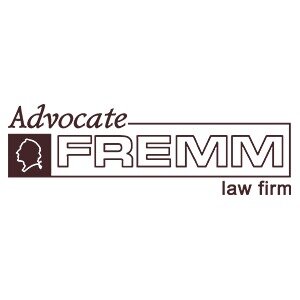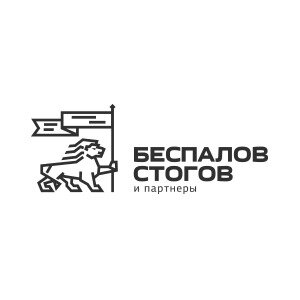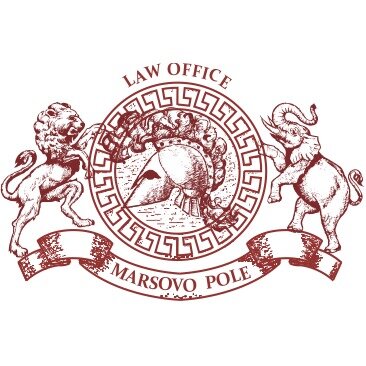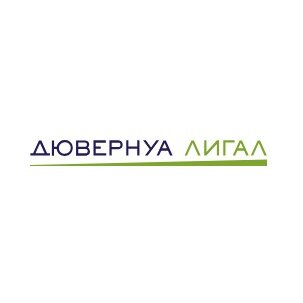Best Conveyancing Lawyers in St Petersburg
Share your needs with us, get contacted by law firms.
Free. Takes 2 min.
Free Guide to Hiring a Real Estate Lawyer
List of the best lawyers in St Petersburg, Russia
About Conveyancing Law in St Petersburg, Russia
Conveyancing refers to the legal process of transferring ownership of real estate from one party to another. In St Petersburg, Russia, this area of law is closely regulated by both federal statutes and regional regulations. The process covers a range of transactions including the purchase, sale, registration, and inheritance of property. Thorough due diligence, legal documentation, and interaction with various authorities are required to ensure the transaction is lawful and enforceable. Local legal experts play a crucial role in navigating these procedures, especially considering the specific rules relevant to St Petersburg.
Why You May Need a Lawyer
Engaging a lawyer for conveyancing activities in St Petersburg is highly recommended, as real estate transactions involve significant financial and legal implications. Common scenarios where legal assistance is valuable include:
- Purchasing property where ownership history must be verified
- Selling real estate and ensuring compliance with legal requirements
- Resolving disputes over property rights or boundaries
- Handling inheritance or gifting of real estate assets
- Assisting foreign nationals in understanding or complying with local rules
- Navigating issues arising from shared or communal property arrangements
- Dealing with registration or title correction issues
A lawyer will review contracts, carry out due diligence, represent clients in official institutions, and help avoid costly legal errors.
Local Laws Overview
Conveyancing in St Petersburg must comply with a number of important laws and regulations. Russian federal laws such as the Civil Code of the Russian Federation set out the general rules for real estate transactions, including contract formation, property rights, and inheritance. Local legislation and administrative requirements dictate additional procedures, especially concerning specific registration rules with the Federal Service for State Registration, Cadastre and Cartography (Rosreestr).
Key aspects include:
- Mandatory notarization of certain contracts, such as sales of shares in jointly owned property
- State registration of property rights and any encumbrances in the Unified State Register of Real Estate
- Strict requirements concerning documentation and disclosure from both parties
- Potential pre-emptive rights held by co-owners or state bodies in some transactions
- Currency control considerations, especially for non-resident transactions
- Compliance with urban planning and zoning regulations
Failure to follow these laws and regulations may lead to significant delays, invalidation of a transaction, or financial penalties.
Frequently Asked Questions
What is conveyancing?
Conveyancing is the legal process through which ownership of real estate is officially transferred from one party to another, covering tasks like contract drafting, title checks, and registration.
Do I always need a lawyer for property transactions in St Petersburg?
While not legally required for all transactions, hiring a lawyer is highly recommended to safeguard your interests, validate documents, and minimize risks.
What is Rosreestr and why is it important?
Rosreestr is the Federal Service for State Registration, Cadastre and Cartography. All property rights and restrictions in St Petersburg are registered with Rosreestr, making its records crucial for legal security.
Can foreigners buy property in St Petersburg?
Yes, foreigners can purchase most types of property, but there are restrictions on specific categories, such as agricultural land or properties in border zones. Specialist legal guidance is needed.
How long does the conveyancing process take?
If all documents are in order, standard transactions can be completed in 10-20 business days, but complications such as title disputes or incomplete paperwork can cause delays.
What documents are needed for conveyancing?
Commonly required documents include passports, title deeds, property technical information, notarized powers of attorney if applicable, and payment proofs. Details may vary by transaction type.
Can I buy a property that is still mortgaged?
Yes, but the process is more complex. The mortgage must be paid off or transferred according to Russian law. Legal assistance is critical in these scenarios.
What happens if property boundaries are disputed?
Boundary disputes are common and often require negotiation, expert surveying, or court proceedings. Professional legal and surveyor assistance can help resolve such issues.
Are there taxes or fees involved?
Buyers and sellers may face state duties, notary fees, and, in some cases, taxes on profits from the sale. A lawyer can clarify the costs for your specific situation.
What should I do if a transaction goes wrong?
Immediate legal consultation is advisable. A lawyer can assess your position, engage with authorities, and help you pursue remedies or dispute resolution.
Additional Resources
For more information or official guidelines regarding conveyancing in St Petersburg, the following resources may be helpful:
- Rosreestr (Federal Service for State Registration, Cadastre and Cartography)
- Notarial Chamber of St Petersburg
- Chamber of Advocates of St Petersburg
- Local offices of the Department of Property Relations of St Petersburg
- Russian Ministry of Justice
These bodies can provide general advice, official forms, and updates on law and procedures.
Next Steps
If you are considering buying, selling, or otherwise dealing with real estate in St Petersburg, the following steps are recommended:
- Gather all relevant property documents and personal identification
- Contact a qualified local lawyer specializing in conveyancing
- Arrange an initial consultation to discuss your situation and potential issues
- Review any proposed contracts or agreements before signing
- Ensure proper registration of any transaction with state authorities
Professional legal support will help you navigate the complexities of Russian property law, protect your investment, and ensure a smooth and valid transfer of ownership.
Lawzana helps you find the best lawyers and law firms in St Petersburg through a curated and pre-screened list of qualified legal professionals. Our platform offers rankings and detailed profiles of attorneys and law firms, allowing you to compare based on practice areas, including Conveyancing, experience, and client feedback.
Each profile includes a description of the firm's areas of practice, client reviews, team members and partners, year of establishment, spoken languages, office locations, contact information, social media presence, and any published articles or resources. Most firms on our platform speak English and are experienced in both local and international legal matters.
Get a quote from top-rated law firms in St Petersburg, Russia — quickly, securely, and without unnecessary hassle.
Disclaimer:
The information provided on this page is for general informational purposes only and does not constitute legal advice. While we strive to ensure the accuracy and relevance of the content, legal information may change over time, and interpretations of the law can vary. You should always consult with a qualified legal professional for advice specific to your situation.
We disclaim all liability for actions taken or not taken based on the content of this page. If you believe any information is incorrect or outdated, please contact us, and we will review and update it where appropriate.














